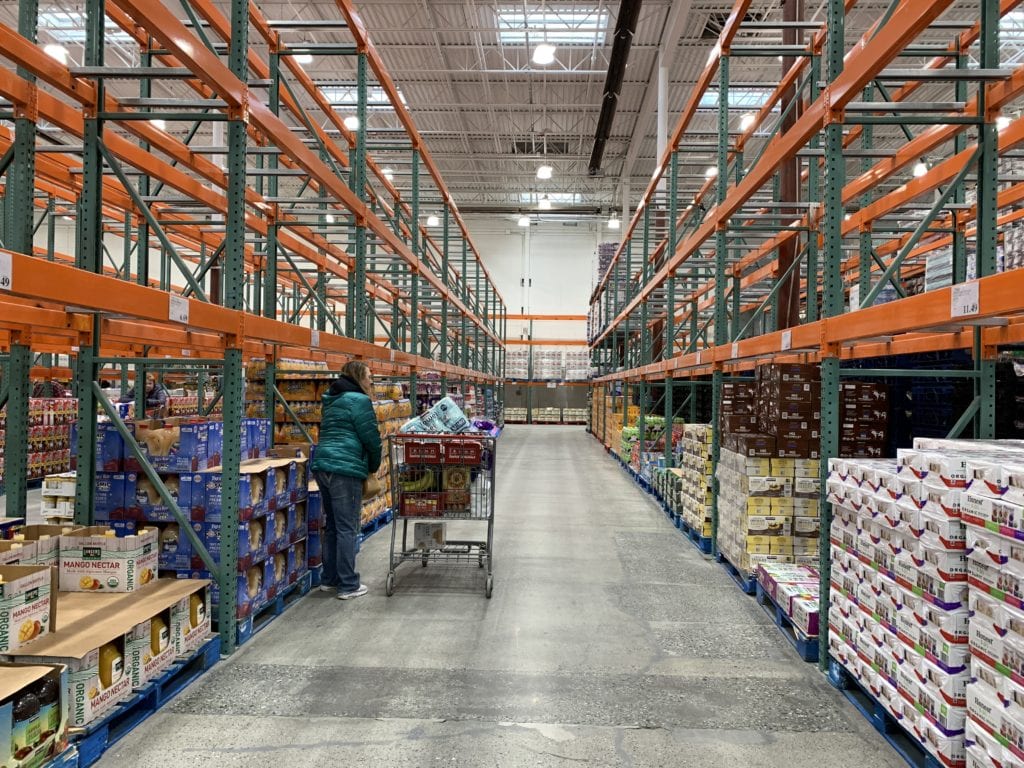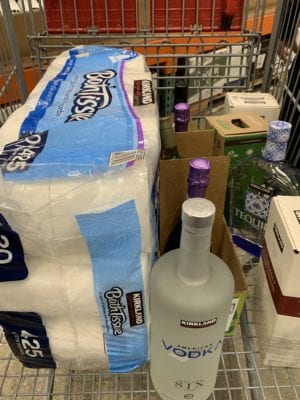
Alaska’s chief medical officer is imploring residents to stay home and away from other people for the next two weeks as medical providers built up the health care structure, least the state be overwhelming by the novel coronavirus causing a pandemic.
“The more we close things down the better we all will be,” Dr. Anne Zink said. “It’s very simple. Shelter in place. Stay at home.”
Zink’s message during what are becoming daily news briefings on the impact of the pandemic on Alaska was echoed by Gov. Mike Dunleavy, who said while the state is mobilizing to build its defenses against the virus, which has already sickened thousands of people worldwide that “this pandemic has shown us and much of the world that we are not prepared for everything.”
“We can come up with advisories and mandates,” Dunleavy said. “We have done pretty good compared to other states, but we can do a lot better.”
Mandates now in effect require all persons entering Alaska to self-quarantine for 14 days and for all businesses or gatherings in which individuals are within six feet of each other to cease operations, with no gatherings of more than 10 people to take place until further notice. Violators of the mandates are subject to a fine of up to $25,000 or up to a year in prison.
During the news briefing on Tuesday, March 24 in Anchorage, the governor and Zink also announced that a total of 42 people in Alaska have now tested positive for the virus and that an Alaskan who had been in Washington state for some time had died of the virus. The deceased individual was identified only as a resident of Southeast Alaska who died on March 16 in a health care facility in King County, Washington.

At press time, six more people in Alaska have tested positive for the virus, including two each in Fairbanks and Ketchikan and one each in Juneau and Sterling, bringing the statewide total to Anchorage 17, Fairbanks, 9, Ketchikan 8, plus two each in Palmer and Sterling and one each in Seward and Soldotna.
State health officials said the new Juneau case was travel-related and the newly diagnosed individuals in Fairbanks and Sterling caught the virus from close contacts. The other three cases were still under investigation. One of the 42 infected people, who is believed to have picked up the virus in the Lower 48, was hospitalized, in the critical care unit at Bartlett Regional Hospital in Juneau.
Case count updates are now being made daily at coronavirus.alaska.gov by 5 p.m., including all positive test results reported by 3 p.m. of that date.
“We talk about what we can do to fight this virus,” Zink said.
I think of it as a forest fire. Each of us is a dry piece of kindling if we don’t slow this down.”
Zink warned that some of the COVID-19 symptoms are incredibly mild, and that individual Alaskans have got to take this seriously.
“With this virus it is all of us,” she said. Earlier she described the virus as “like fighting a war, but it’s a war against this silent, sneaky killer that is transmitted by the healthiest, youngest people who may have the smallest symptoms, and then without even realizing it infect the elderly, people who are pregnant, people who have underlying medical conditions.”
Some older residents, from Anchorage to Juneau said they have taken very seriously the advice to self-isolate and said that they are having anything they need delivered, with no intention of leaving their homes.
Residents of all ages returning to the state are also, for the most part, abiding by the mandate to isolate themselves in their homes for 14 days.
Meanwhile people are still gathering on beaches in Florida and in restaurants in New York, Dunleavy said.
“Not everyone in other states is staying in their house,” he said. “If we can do the things we talked about, we will accomplish more than other states will.”
Alaskans can still get outdoors to walk, cross country ski, walk dogs, ice skate and more, he said, as long as they are away from other people.
The mandates to self-quarantine for 14 days and for restrictions on a number of businesses, from bars and restaurants to hair salons, tanning facilities and gyms are having a significant impact on life in Alaska, and the livelihoods of hundreds of people whose income has sudden dramatically decreased or vanished. Popular sit down and fast food restaurants alike are now limited to offering orders to go. An increasing number of retail shops are restricting access to employees only and offering curbside delivery for products their customers wish to purchase.
Community leaders are encouraging residents to support local shops by purchasing food and beverages to go, to keep employees not already let go working.
Supermarkets and box stores, like Carrs Safeway, Fred Meyer and Costco meanwhile are doing a booming business and having a hard time keeping up with the demand for everything from toilet paper and other paper products to dairy products, canned and frozen foods. Costco stores in Anchorage are now limiting the number of people who can shop at a time, to allow for that recommended six feet of space between everyone. The same stores, plus others like Walgreens, are offering special early morning shopping hours for seniors only, where they can presumably shop in a less crowded environment, since they are considered more susceptible to the virus.
The number of people applying for unemployment benefits is expected to skyrocket.
In an effort to help out the suddenly unemployed, the Legislature has passed House Bill 308 waiving the one-week waiting period to apply for unemployment insurance.
“Pending the governor’s signature, this will provide some quick relief for Alaskans who are not able to work or who are underemployed because of public health measure related to COVID-19,” Sen. Gary Stevens, R-Kodiak said. “This bill also increases the weekly per-child benefit from $25 to $75, providing relief for families who have lost childcare and income simultaneously.”





